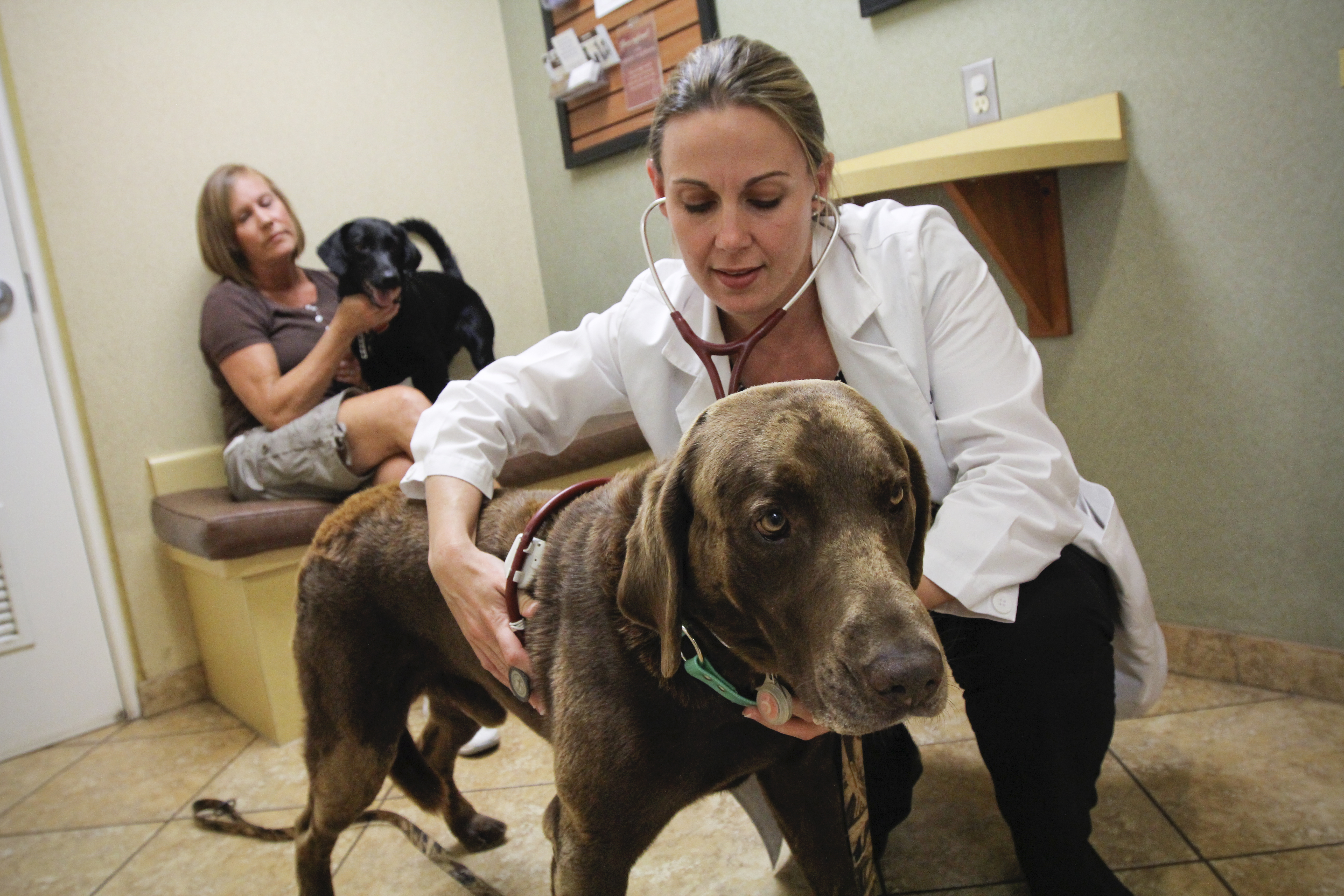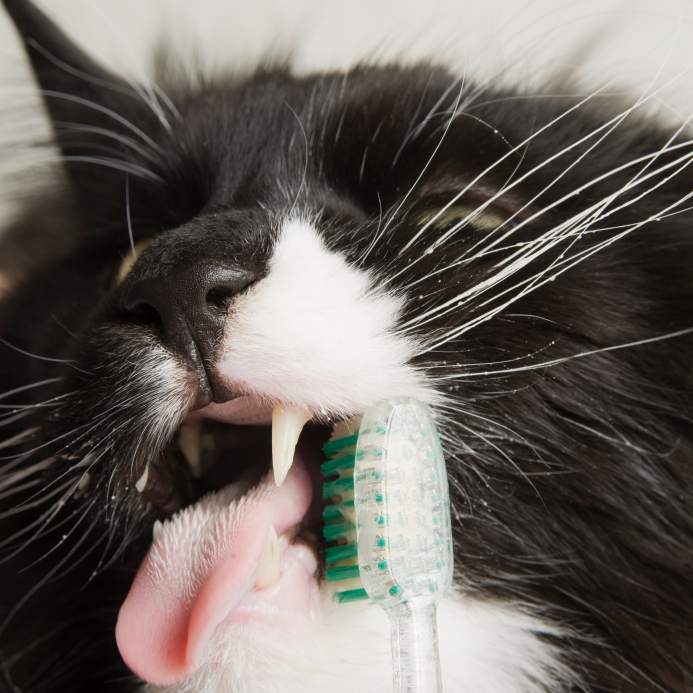Would you wait seven years to get a physical check-up from your doctor? Most of us wouldn’t and our pets shouldn’t, either—especially as they get older.
On average, pets age seven times faster than people. This means that most dogs and cats reach adulthood by age two and middle age by four. By age seven, most dogs—particularly larger breeds—are entering their senior years!
Because pets age so rapidly, health problems tend to progress faster in pets as well. The risk of many diseases, including dental disease, heart disease, diabetes, kidney disease, arthritis and cancer all increase with age and have the potential to worsen within a matter of weeks. Even pets that appear normal may have an underlying problem, which is why regular visits to the veterinarian are crucial for older pets.
These visits provide an opportunity to discuss the well-being of your pet as he/she ages. This includes discussions about your pet’s behavior, sleep patterns, family interactions, nutrition and exercise as well as a full physical examination. Bi-annual exams and yearly wellness blood work are recommended for all pets eight years and older.
It is important to remember that the signs of aging in dogs and cats—including reduced hearing and eyesight, muscle wasting or atrophy, cognitive dysfunction and a graying face or muzzle—may not become noticeable until the pet is very old. A veterinarian is skilled at detecting subtle changes in a pet’s body that an owner may not even be aware of. Early detection of these changes can help prevent disease and minimize suffering of an older pet.

We all want to keep our pets happy and healthy well into their golden years. Here are a few key things to keep an eye on between wellness exams:
Senior Pet and Diet
As your pet ages, his/her dietary needs may change. Often, older pets require foods that are easier to digest or they simply may not be getting the optimal nutrition their aging bodies need. Other times, aging pets may need a specific diet to address certain problems within the body, such as kidney disease or hyperthyroidism. Your veterinarian can help you assess your pet’s dietary needs as he/she ages and recommend a balanced diet to meet those needs.
Senior Pet and Exercise
Every pet ages differently, but all benefit from regular exercise. Dogs in particular age better with daily exercise, such as a short walk. This type of physical exercise can help pets maintain a healthy body weight and slow the progression of old-age arthritis, while stimulating mental exercise, such as hunting behavior in cats, can help keep the mind sharp and senility at bay.
Senior Pet and Weight Control
Typically, weight gain is a problem for aging dogs, while weight loss is a concern for older cats. If your pet has become less active with age, he/she may become overweight. Consult your veterinarian about adjusting the calories in your pet’s diet to compensate for this change. Excess weight is damaging to your pet’s health and can make existing problems like joint pain or heart disease worse. While weight loss is a common part of aging for some pets, it could also indicate a medical problem. If you suspect your pet is losing weight, please contact your veterinarian.
 Senior Pet and Dental Care
Senior Pet and Dental Care
Dental and periodontal disease—including gingivitis, infection and bone loss—are frequent sources of pain for older pets, though they may not show outward signs of discomfort. In addition, these diseases lead to poor general health and are often associated with liver, kidney and heart disorders. Regular home dental care and professional cleanings are necessary to keep your pet’s mouth healthy and comfortable as he/she ages. If a pet will not tolerate daily brushing, dental diets, chews or wipes may help.
Senior Pet and Pain Control
While it is common for older pets to experience aches and pains, they often will not give any indication of their discomfort. Your veterinarian can help you determine whether your pet is in pain and work with you to implement small lifestyle changes that can help make aging more graceful. Additional bedding, restricted stair access, easily accessible litter boxes and more time spent indoors may all help alleviate pain from arthritis or other joint problems. Pain control medications, like Tramadol or Rimadyl, as well as complementary therapies such as acupuncture and laser therapy may also be helpful.
Senior Pet and Vaccinations
Vaccination needs may change as a pet ages. In some cases, often for very geriatric pets, vaccines may be discontinued altogether. Discuss these needs with your veterinarian to find the right protocol for your senior pet. As always, vaccination plans are based upon each individual pet’s lifestyle.
Senior Pet and Parasite Prevention
It is important to keep your pet’s flea and intestinal parasite control consistent, especially in his/her senior years. Many older pets have weakened immune systems that cannot fight off disease as well as those of younger pets.
